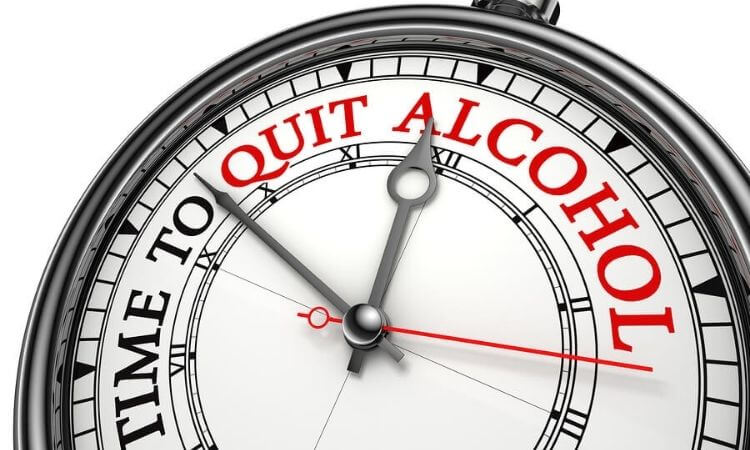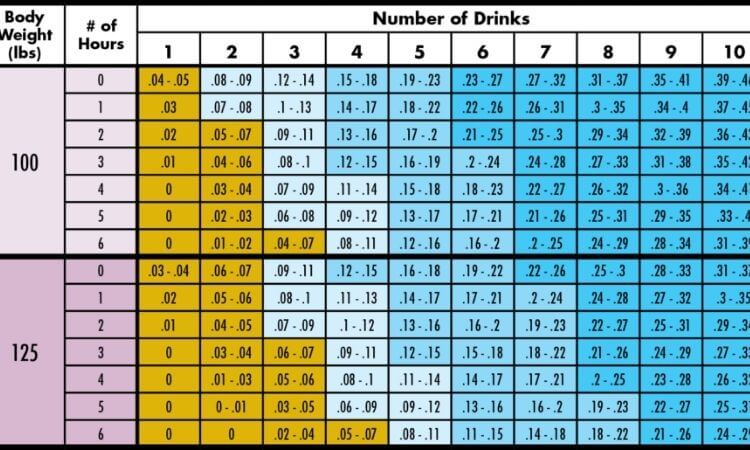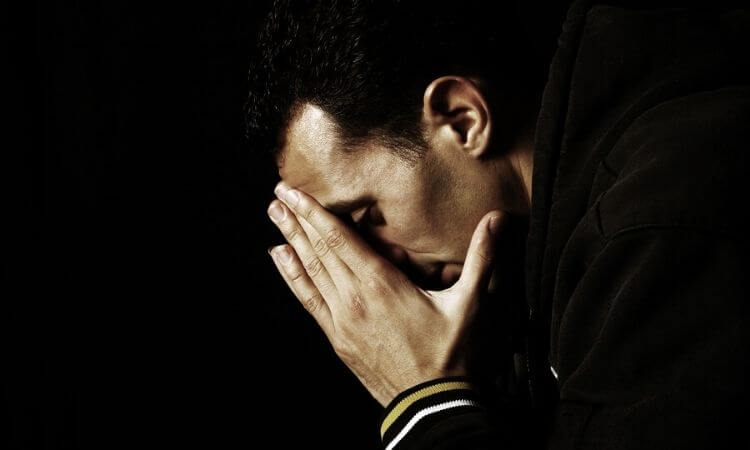
The rate of alcohol elimination is different for everyone. However, an average liver can process approximately 1 unit of alcohol per hour. This means that drinking 12 units will take you roughly 12 hours to fully sober up.
People who start drinking never do so in the hopes of developing alcohol use disorder. Often, what begins as casual or occasional heavy drinking or binge drinking episodes morphs into a dangerous habit.
When a person drinks excessively, intoxication occurs. The liver processes only about 1-2 standard drinks per hour. Anything beyond this causes a person’s blood alcohol concentration to rise significantly.
Depending on how much a person drinks and other factors, it can take hours to completely sober up.
One standard drink is defined as the following:
- 12 oz. of beer at about 5% ABV
- 5 oz. of wine at about 12% ABV
- One shot of liquor at about 40% ABV (80 proof)
While the length of time a person remains “drunk” varies, the average, moderately-intoxicated person will probably be sober in 6-8 hours. If it takes much longer than this, the person should be (or should have been) hospitalized.
Charts such as the one seen here can help a person gauge what their blood alcohol concentration will be over the next few hours after consuming a certain number of drinks.

Alcohol Withdrawal
Binge drinking or long-term drinking can lead to highly unpleasant withdrawal symptoms. But, a person doesn’t have to be an alcoholic to encounter severe alcohol withdrawal. In fact, if you’ve never experienced it, this can be quite frightening, especially for those who don’t realize how intense these symptoms can be.
The duration of alcohol withdrawal is different for everyone. Nonetheless, according to the National Library of Medicine, this process usually begins within about 8 hours after the last alcoholic drink is consumed, but it may take longer. Acute symptoms, which are the most worrisome, tend to peak within 24-72 hours, then subside for the next few days. Emotional symptoms, however, may persist for much longer.
Alcohol Withdrawal Symptoms
Alcohol withdrawal symptoms begin within hours of an excessive drinking episode. It is essential to realize that alcohol withdrawal syndrome is potentially life-threatening if not addressed medically.
A person who has been drinking a large amount of alcohol or for a long time (i.e., regularly, every day) will develop a physiological dependence. When this occurs, their brain becomes accustomed to the presence of alcohol.
Alcohol is a central nervous system (CNS) depressant, which inhibits the effects of certain chemical messengers in the brain. When alcohol is removed, a rebound effect occurs, not unlike a spring bouncing back.
These effects can result in many adverse complications, including anxiety, accelerated heart rate, and even seizures.
Symptoms of alcohol withdrawal may also include the following:
- Irritability
- Depression
- Anxiety
- Extreme Fatigue
- Sweating
- Nausea
- Vomiting
- Mood swings
- Dangerous dehydration
- Shakiness
- Tremors
- Delirium tremens (DTs)
In many ways, these symptoms are the exact opposite of those a person experiences when intoxicated. Many people enjoy the feelings that alcohol induces, compelling them to drink repeatedly and excessively.
The discomfort of withdrawal often drives people to drink again to prevent it—a vicious cycle

Alcohol Withdrawal: How Long Does It Last?
The duration of alcohol withdrawal is different for everyone. Nonetheless, according to the National Library of Medicine, this process usually begins about 8 hours after the last alcoholic drink is consumed, but it may take longer.
Acute symptoms, which are the most problematic, tend to peak within 24-72 hours, then subside for the next few days. Emotional symptoms, however, may persist for much longer.
Binge drinking or long-term drinking can lead to highly unpleasant withdrawal symptoms. But, a person doesn’t have to be an alcoholic to encounter severe alcohol withdrawal.
If you’ve never experienced it, this can be pretty frightening, especially for those who don’t realize how intense these symptoms can be.
Determining Factors For Alcohol Elimination
Many factors can play a role in the number of hours a person remains intoxicated and how long and intense the withdrawal process will be.
These factors include the following:
- Amount of alcohol consumed
- Length of time the person has been drinking
- How frequently the person has been drinking
- Nutritional considerations
- Amount of food consumed before or during drinking
- Weight, age, and sex (male or female)
- Other substances ingested, such as prescription or illicit drugs
- Presence of co-occurring physical or mental health conditions
The Importance of Professional Alcohol Addiction Treatment
If you or a loved one are suffering from alcohol withdrawal symptoms, it’s critical to seek medical care. If delirium tremens develops, the possibility of death skyrockets.
Detoxing under the supervision of medical professionals ensures a person’s safety, reduces the likelihood of relapse, and increases their comfort. What’s more, medications can be administered to mitigate withdrawal symptoms, and staff will ensure the patient receives adequate nutrition and is well-hydrated.
Note that alcohol detox is not the same thing as a complete, comprehensive rehab program. Therefore, once detox is completed, patients with substance abuse issues are should enroll in further treatment.
Most people who struggle with alcoholism are unable to remain sober long-term. For this reason, extended therapeutic care is usually needed to help those suffering prevent relapse and find healthier ways of dealing with negative emotions and stress.
Find Treatment For Alcohol Addiction
Midwood Addiction Treatment offers evidence-based treatment programs that are customized to each individual’s unique needs. In addition to outpatient detox, we offer programs in partial hospitalization and intensive outpatient formats.
Our therapeutic services include, but are not limited to, the following:
- Behavioral therapy
- Individual counseling
- Family counseling
- Medication-assisted treatment
- Substance abuse education
- Peer support groups
- Health and wellness
- Holistic therapies
- Aftercare planning
Call us at (704) 741-0771 today if you are ready to break free from the chains of addiction for life! We are committed to helping our clients succeed in recovery and reclaim the healthy and happy lives they deserve.
Sources:
Cleveland Clinic – How Long Does Alcohol Stay in Your System?
MedlinePlus – Alcohol withdrawal